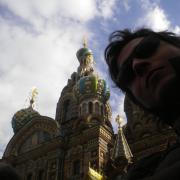Presentations

GNU and Linux are now embedded in more kinds of hardware than ever, but nearly always only by requiring proprietary bits. The world's most popular tablets and phones are based on a free core system loaded with nonfree software on top. How do we get the freedom we all want, and what is the market for that?

It has been a while since snappy has been introduced into the aggressive world the software ecosystem now lives in.
After a quick introduction to snaps. We intend to quickly travel that road up until today and explore the new features available for developers to be able to create and distribute snaps to anxious users wanting a stable base but the latest software.

From the beginning, OpenStack has experienced meteoric growth in developers and contributions. The project strives hard to put process in place to ensure that nobody is more special than anybody else. Applying those same tenets to the running of the project's developer tools and automation introduces some interesting wrinkles - most notably how to balance the urge to empower everyone equally with the need to restrict some actions for security reasons.

Do you want to have a great job in Linux or Open Source? Come and join Ross Brunson, former Member Services Director with LPI (Linux Professional Institute) and currently the SUSE Certification Architect for a fun and very helpful presentation about all the wonderful employment opportunities in the world of Linux and Open Source companies.

Event logging is a central source of information for IT security. The syslog-ng application collects logs from many different sources, performs real-time log analysis by processing and filtering them, and finally it stores the logs or routes them for further analysis. This session focuses on how syslog-ng parses important information from incoming log messages, enriches them with additional contextual information, and concludes with demonstrating how all of this can be used for alerting or for dashboards.
Since the rise of surveilance states and the ever lessening promise of net neutrality, it seems a desirable goal to find an alternative to the internet we have come to know and love. During the last decade many different mesh networking technologies have arisen that address the issue in their own manner. In this talk, we examine some of these technologies and hardware patterns that can be used to build the next internet.

Juju is a modelling system that allows you to create your own software ecosystem in just a couple minutes, and with a couple taps or clicks. Learn how to deploy from the most simple to the most complicated software without having to spend sleepless nights, and removing some of the caffeine from your life.

Do you resist language fads? Kudos to you! Are you unmoved by blog posts that showcase the hottest new syntactic sugar in one or two lines of toy code? Respect. Why should you be moved, if you approach your design module by module and not line by line?
This salespitch for Go is delivered by a curmudgeony skeptic. By now, we've all heard that Go has goroutines. Is that all?
Come hear what Go can do for expressing your application architecture and for reinforcing best practices.




